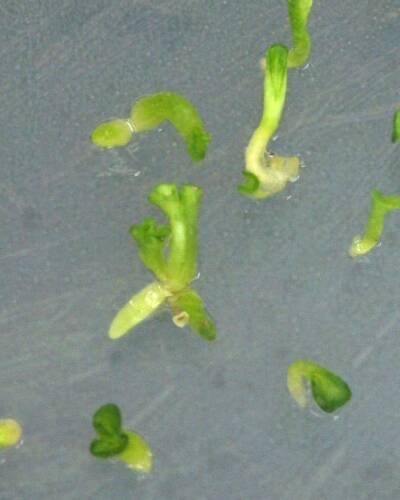Somatic embryogenesis is the formation of embryos in tissue culture from vegetative tissue.
Somatic embryos are clones or copies of the mother plant, while zygotic embryos show diversity from the fusion of sexual gametes.

Somatic embryos differ from sexually derived zygotic embryos in several significant ways.
Somatic embryos also lack seed parts, like the endosperm, seed coat and any fruit parts.

However, somatic embryos still go through the recognizable stages of embryogenesis and synthesis of storage reserves.
The somatic embryos to the right show typical dicot embryogenesis including globular, heart and cotyledon stages of development.

Stages of somatic embryogenesis.
- Induction
- Development
- Conversion
- Germination

The induction stage usually requires 2,4-D.


The development stage is inhibited by 2,4-D and is often enhanced by ABA.


Somatic embryos often arise from epidermal cells.

Conversion prepares the embryo for germination and can be aided by desiccation.

Eventually, mature somatic embryos will germinate and form seedlings that can be transferred to a greenhouse medium and grown into whole plants.




